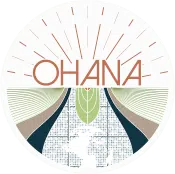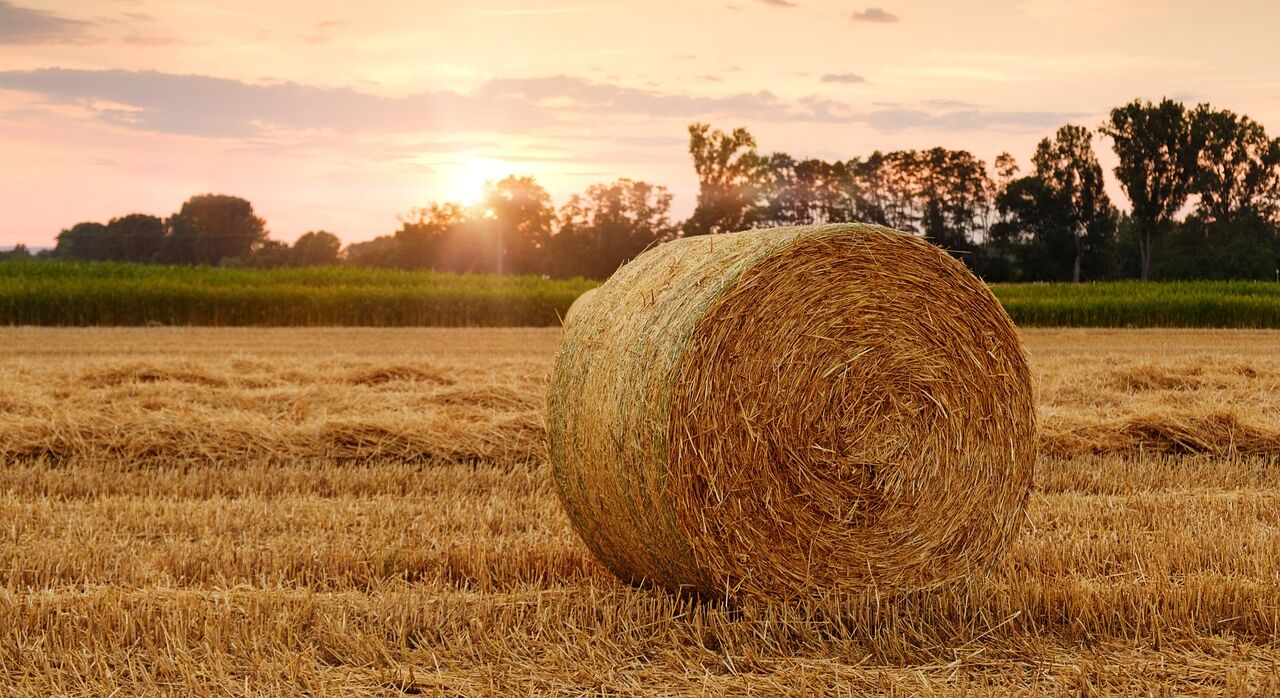Agri-Food Monthly Insights: May 2025
Welcome to our monthly insights into all EU agri-food policy news – from legislations and debates to political deals and manoeuvring – directly from Brussels and with a focus on sustainability.

Major EU developments in detail
1. OMNIBUS SIMPLIFICATION PACKAGE
Stop the Clock” adopted, negotiations on the rest of the Omnibus kicked off
What? Negotiations on the “Stop the Clock” Directive, postponing entry into application of the Corporate Sustainability Reporting Directive (CSRD) and the Corporate Sustainability Due Diligence Directive (CSDDD) have concluded. After the speedy approval by the European Parliament and the Council of the EU, the Directive was published in the Official Journal of the EU on 16 April. Member States must transpose the EU law into their national legislation by 31 December 2025.
Meanwhile, political discussions on the more substantive provisions of the Omnibus Simplification Package have kicked off. The Council Presidency has already presented a first draft compromise position, now under review by Member States. The draft suggests expanding the definition of “plausible information” to conduct in-depth due diligence assessments beyond direct partners, and proposes that periodic checks of adverse impacts should be conducted every three years. The Presidency’s position broadly endorses the Commission’s changes for the CSRD and the Taxonomy.
In the European Parliament, a first exchange of views took place in the Legal Committee on 23 April: Jörgen Warborn (center-right/EPP, Sweden) has already made clear that he would like further than what the Commission proposed, anticipating challenging negotiations ahead. The Parliament’s draft report will be presented on 23-24 June 2025.
Why is it important? While the “Stop the Clock” Directive was adopted with a swift consensus, the remainder of the Omnibus Package is expected to face more complex and contentious negotiations. In the European Parliament, the role of SMEs and the civil liability provision appear to be some of the most contentious topics of discussion, while the Council has focused its first amendments on the “plausible information” definition and due diligence assessments. From a political point of view, the decision of the extreme right parties to oppose both CSRD and CSDDD altogether puts the EPP at a crossroads and increases the chances of a compromise with the centre left, the Greens, and the Liberals.
Read our in-depth blog article to find out more about the Omnibus Simplification Package.
2. EU DEFORESTATION REGULATION
The EU eases EUDR obligations ahead of implementation
What? Ahead of the EU Deforestation Regulation (EUDR) application on 31 December 2025, the EU published a series of measures to reduce costs and administrative burdens by about 30%. These include updated guidance and some frequently asked questions that should help companies, EU member states authorities and partner countries navigate the EUDR requirements. The documents clarify that: due diligence statements must be submitted annually, instead of for each batch placed on the market; downstream companies will only have to refer to the due diligence statement of the importer; companies will be able to reuse existing due diligence statements when products are reimported.
A Delegated Act will also be introduced to complement the simplification measures, providing necessary clarifications on the scope of the EUDR, especially for specific product categories. A draft of the Act has now been published and is open for public consultation until 13 May.
Looking ahead, by 30 June 2025, the European Commission is expected to present a country benchmarking system, a risk assessment framework that categorises countries as low, standard or high risk, based on their levels of deforestation.
Why is it important? The EUDR is the EU’s signature law aimed at minimising deforestation. The regulation requires importers of cattle, cocoa, coffee, palm oil, rubber, soya, and wood – as well as their derivatives – to conduct extensive due diligence to ensure the goods entering the EU are not the result of deforestation. For businesses, these newly introduced changes mean lower operational costs and greater efficiency in complying with the EUDR. Looking ahead, stakeholders might be able to advocate for further amendments, as the ongoing EUDR review process is underway and a full EUDR review is planned in 2028.
3. TRADE
Tariff uncertainty threatens agri-food
What? Tariff volatility surged in April, creating significant uncertainty for the agri-food sector. During the so-called “Liberation Day”, U.S. President Donald Trump initially imposed a 20% tariff on all EU imports, a decision which would have impacted the food & beverage sector and major exports to the US, such as wine, beer, and olive oil. However, President Trump decided to suspend the measure just some days later, adding to the unpredictability. In response, the European Union approved reciprocal tariffs on American goods but also opted to suspend their implementation, signaling a preference for a balanced resolution.
Why is it important? The U.S. and the EU now appear to be holding off on tariffs escalation, but the situation remains fluid and poses ongoing risks for businesses dependent on transatlantic trade.
While the U.S. is moving away from free trade, the EU is more than ever motivated to agree on trade deals with the rest of the world. Since the start of her new mandate, Commission President von der Leyen has launched or relaunched talks with the Latin American Mercosur bloc, India, the Philippines, Malaysia, Thailand, the United Arab Emirates, and others.
4. NATURE CREDITS
The European Commission hosts high-level roundtable on nature credits
What? On 23 April, European Commissioner for Environment, Water Resilience and a Competitive Circular Economy, Jessika Roswall, hosted a closed-door roundtable on developing biodiversity certification and nature credits as tools to finance nature restoration. Discussions focused on how to facilitate market development, including potential measures or market enablers, as well as the need to develop a credible methodology and to boost private sector investments.
Why is it important? In September 2024, European Commission President Ursula von der Leyen called for the creation of an EU nature credits system, an initiative inspired by the EU Carbon Removals and Carbon Farming Certification, to assign economic value to biodiversity and help curb its destruction.
However, as with most recent environmental initiatives, the nature credits concept is already proving politically contentious. From across the political spectrum, policy-makers have expressed reservations, with left-wing representatives fearing nature credits initiatives could open the door to profit-driven exploitation of nature, while right-leaning lawmakers warn it could impose further burdens on farmers.
5. CLIMATE CHANGE
2024 warmest year on record in Europe
What? According to the European State of the Climate report, released on 15 April by the EU’s Copernicus Climate Change Service and the World Meteorological Organization, 2024 was the warmest year on record in Europe. Europe is the fastest-warming continent, with a distinct east-west contrast in precipitation conditions, and the continent experienced the most widespread flooding since 2013. At the same time, the report positively shows that, in 2024, a record proportion of electricity was generated by renewables, at 45%
Why is it important? Europe is warming more rapidly than any other continent, with heatwaves becoming hotter, longer-lasting, and increasingly frequent, reshaping entire sectors of the economy. Agriculture is particularly under pressure, with key farming regions facing parched soils and failing crops.
On 4 June, the European Commission will present its Water Resilience Strategy, expected to address water related risks and issues, such as water scarcity. Meanwhile, the European Parliament adopted its own-initiative report on the upcoming EU strategy, seeking to input the Commission’s proposal. The MEPs’ report calls for binding sectoral targets for water efficiency (agriculture, industry, and domestic use), prioritises combating pollution, and pushes for dedicated funding for water resilience.
6. BIOECONOMY
The European Commission launches a public consultation on the EU Bioeconomy Strategy
What? The European Commission has launched a public consultation on the Bioeconomy Strategy, open for feedback until 23 June. Planned in Q4 2025, the new strategy arrives in an era of geopolitical turmoil where it plays an unforeseen role for Europe’s overall competitiveness and resilience. The strategy will be non-legislative, aiming to highlight the role of bioeconomy in creating jobs and developing a new strong industrial base, rooted in sustainability.
Why is it important? In line with the objectives of the Vision for Agriculture and Food and the Competitiveness Compass, the Bioeconomy Strategy will seek to increase the value of the biomass sector beyond food or wood production. The EUalso plans to promote biomass use for energy, as well as for high-value applications such as innovative materials or bio-based chemicals.
Things to watch: Upcoming Events
Shaping The Future Of Farming And The Agri-Food Sector
May 8, 2025
The Conference on the Vision for Agriculture and Food organised by the European Commission will take place on 8 May 2025 in Brussels. It will feature remarks by the Agriculture Commissioner Christophe Hansen, MEP Eric Sargiacomo, EIB VP Gelsomina Vigliotti, among others.
Global Food Forum
May 12-13, 2025
Farm Europe is organising a conference on revitalising the agricultural sector as a sustainable engine of growth in the EU. The agenda includes Commission for Agriculture Christophe Hansen, high-level policymakers and farmers representatives. The conference will take place on a farm, near Brussels.
Omnibus On Agriculture
May 14, 2025
The European Commission is set to present an omnibus simplification package on the Common Agricultural Policy (CAP). A leaked version suggests giving Member States more flexibility in defining permanent grassland and implementing peatland protections, limiting on-farm inspections on subsidy rules to once a year, and removing the annual performance clearance procedure.
Workshop: Perspectives On Purchasing Programme For Carbon Removal And Carbon Farming Regulation – How To Finance Large-Scale Deployment Of Carbon Farming?
May 20, 2025
The Directorate-General for Climate Action of the European Commission is hosting an afternoon workshop on carbon farming financing models. This session aims to discuss how to finance the large-scale deployment of carbon farming in the EU. You can join the workshop both in-person in Brussels, or online.
If you have questions regarding anything in the Ohana Agri-Food Monthly Insights,
please reach out to Natalia Yerashevich at natalia@ohanapublicaffairs.eu, Francesca Fina at francesca@ohanapublicaffairs.eu, or Arthur Faure at arthur@ohanapublicaffairs.eu



